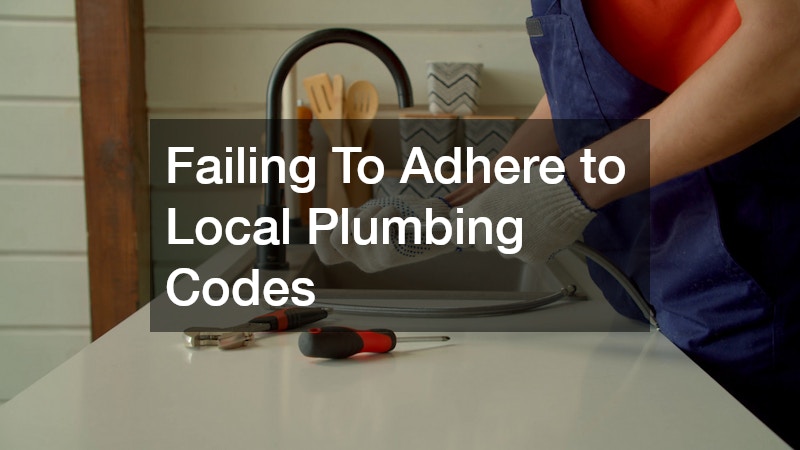One of the most common mistakes DIYers make in plumbing is using the wrong tools for the job. Often, new DIYers attempt to tackle plumbing projects with makeshift tools or inappropriate equipment, which can lead to additional damage or problems. For example, using a pipe wrench in place of a basin wrench can lead to stripped nuts and landlord rage. The improper use of tools can easily escalate a small issue into a significant problem, causing frustration and added costs. It’s crucial to recognize the value of using the correct tools, as professional plumbers do.
Not only does the improper use of tools affect the ease of conducting a repair, but it also impacts the outcome’s quality and longevity. Inadequate tools might not fit into the tight spaces or handle the materials effectively, which reduces the efficiency of any corrective measures.
Furthermore, professional plumbers often have an arsenal of specialized tools tailored for specific plumbing tasks, highlighting the inadequacy of a general toolset. This lack of specialization often results in makeshift solutions that are more vulnerable to failure over time.
Understanding how to choose and correctly use plumbing tools is paramount. Various online tutorials and workshops offer guidance to novices, but they should serve as the starting point rather than the sole source of knowledge. Engaging with a professional, such as a plumber in Stillwater, OK or similar areas, can substantially benefit DIYers by offering insights into selecting appropriate tools and implementing safe techniques. With the right education and set of tools, DIY enthusiasts can prevent many common mishaps.
Neglecting To Turn Off Water Supply
Another frequent oversight is failing to turn off the water supply before beginning plumbing work. This mistake often leads to flooding, water damage, and additional expenses that could have been avoided with a simple precaution. DIYers often underestimate the necessity of this step, thinking that minor leaks or adjustments do not require shutting off the water. In reality, even the smallest plumbing changes can lead to significant water spills if the pressure is not managed effectively.
The importance of shutting off the water supply before performing any plumbing repair cannot be overstated. Many plumbing systems operate under considerable pressure, and even a small miscalculation can result in rapid water discharge. For instance, while replacing a faulty faucet or a leaking pipe, bypassing the step of turning off the supply can lead to uncontrolled flooding. It reflects the fundamental safety measure practiced by professional plumbers who understand the infrastructure intricately.
To ensure that you do not make this mistake, identify where your main water shut-off valve is located before starting any plumbing project. Knowing how to operate this valve allows you to stop the flow instantly should problems arise during the repair process. Professional plumbers in Stillwater, OK or the surrounding regions can provide guidance on locating and maintaining this vital component. They can also help set a checklist outlining essential steps for successful plumbing upkeep, saving you significant stress and expense.
Failing To Adhere to Local Plumbing Codes

Adhering to local plumbing codes is necessary, yet many DIYers overlook this crucial aspect when undertaking plumbing projects. Plumbing codes are established to ensure safety, health, and efficiency; neglecting them can lead to serious legal and structural issues. Many DIY projects are initiated without a comprehensive understanding of these codes, raising the risk of penalties or having to redo work unnecessarily. Failing to consult codes can also result in installations that do not meet safety standards, which can be hazardous.
Common examples include incorrect pipe sizes, insufficient drainage slopes, and improper venting systems. These oversights can lead to inefficient plumbing performance and potential structural damage. Moreover, local regulations are constantly updated to match new safety protocols, making it vital for DIYers to keep informed. A lack of adherence does not just affect the homeowner alone but can also impact neighbors if issues like backflows or cross-contamination arise from improper installations.
Those keen on DIY plumbing should research their local regulations thoroughly before starting a project. Collaborating with a professional plumber, like a plumber in Stillwater, OK or a similar area, can also help ensure compliance with local codes and avoid costly future corrections. Professionals bring both knowledge of local codes and experience that can safeguard your home against potential hazards while maintaining operational efficiency. Combining eagerness with professional oversight creates a balanced approach that respects both creativity and safety.



